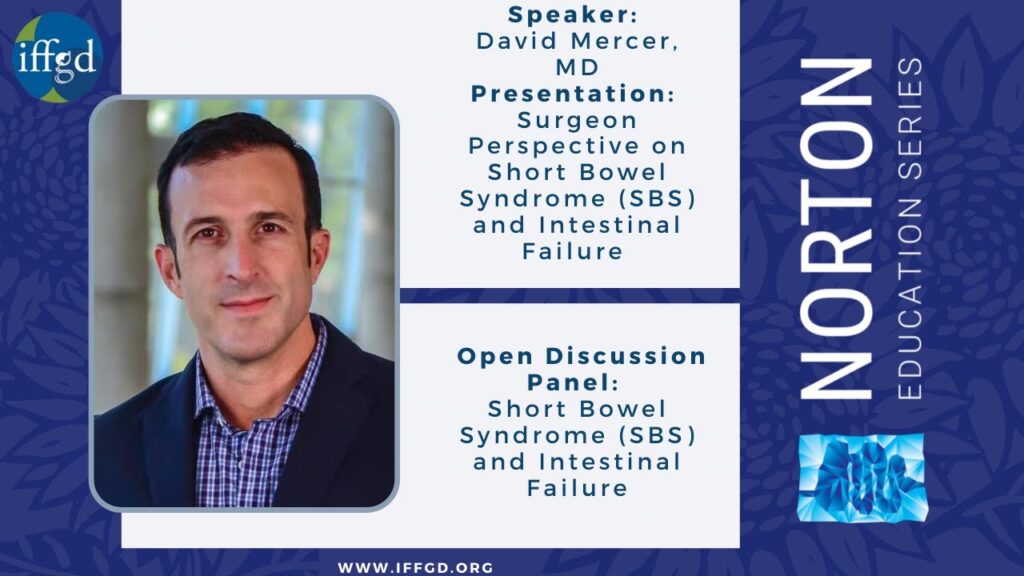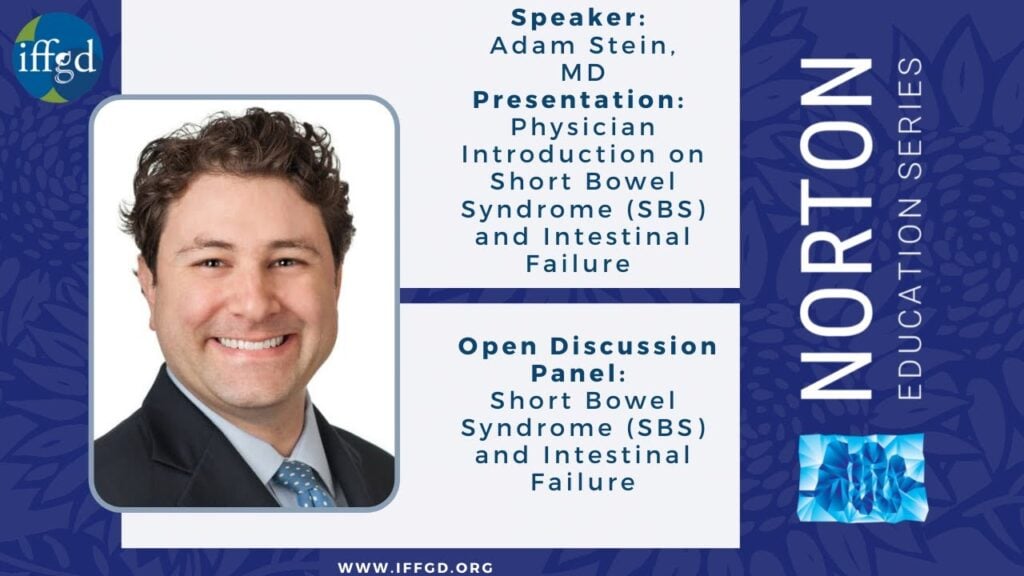Surgeon Perspective on Short Bowel Syndrome (SBS) & Intestinal Failure: 2021 NES

Surgeon Perspective on Short Bowel Syndrome (SBS) & Intestinal Failure This video is a part of the 2021 Norton Education Series: 30th Anniversary Event which was broadcast on November 6 & 7, 2021. Warning: Some of the educational videos in this program contain graphic images of the human body related to medical procedures and for […]
Physician Intro to Short Bowel Syndrome (SBS) & Intestinal Failure: 2021 NES

Short Bowel Syndrome (SBS) & Intestinal Failure – Presented by Dr. Adam Stein This video is a part of the 2021 Norton Education Series: 30th Anniversary Event which was broadcast on November 6 & 7, 2021. Warning: Some of the educational videos in this program contain graphic images of the human body related to medical […]
411 How to Qualify for Social Security Benefits
Gastrointestinal (GI) disorders are more common than people think. Even though almost everyone has occasional bouts of GI issues, thousands of people have chronic and severe GI disorders that can make it impossible for them to work. If you have worked in the past but can’t work now because of a GI disorder that you expect to last a year or more, you can file a […]
Working With a Healthcare Team for SBS
Short bowel syndrome (SBS) is a complex, challenging condition for patients, caregivers, doctors, and other health specialists. Treatment of the condition involves life-long therapies and approaches that need to be closely monitored. Successful management of SBS depends most strongly on an informed patient and caregivers working closely with a supportive team of healthcare providers. Working […]
Brochure: Short Bowel Syndrome (SBS)
This publication is intended to help people with short bowel syndrome (SBS) and their family members understand why symptoms occur and provide an overview on how SBS can be managed.
116 – Doctor – Patient Communication
Functional GI disorders present a special challenge to the doctor-patient interaction for several reasons. First, functional GI disorders are characterized, in most cases, by vague symptoms of variable intensity. Many times, these symptoms involve the most intimate anatomic areas of the body. The sensitivity of these issues can complicate the task for the patient who needs to express them in terms that the physician can interpret to formulate a diagnosis. Secondly, the physician is hampered by the absence of obvious structural lesions that often lessens the likelihood of devising a specific medical intervention that is successful. In some cases, the physician’s own anxiety can be increased by the lack of a symptom complex that leads to well-understood disease entity, such as parasites or lactose intolerance. This deficiency, in turn, often leads both physician and patient to over-investigate the symptoms. So what are the ingredients that comprise successful doctor-patient communication about the functional GI disorders?
221- The Medical History: How to Help Your Doctor Help You
The most important interaction between patient and doctor is the medical history. Through listening to the story of the patient’s illness and asking relevant questions, a physician may often make a diagnosis, or at least begin to understand the nature and location of the complaint. A few easy steps can help make this process more efficient leading to prompt, more precise diagnosis and treatment. Revised January 2012.
231 – Can Intense Exercise Lead to GI Symptoms?
Can exercise be linked to GI symptoms such as diarrhea or heartburn? This article will help you understand how exercise and associated factors can influence the GI tract.
206 -Health Reporting in the Media: What to Believe?
Most people learn of medical progress through the media. Yet this news is often unhelpful. Exaggerated cures, contradictions, and plainly misleading information can do harm. The problem is not science, but how journalists report it, and how the public interprets it. This essay aims to help readers make sense of health news. Reviewed 2009.
Choosing Apps for Managing Chronic GI Illness

In this episode of Exploring Gut Topics, we speak with William Chey, MD, Satish Rao, MD, and Amanda Lynett, RDN, to discuss apps designed to help patients manage chronic gastrointestinal illnesses and monitor GI motility. IFFGD does not endorse any of the apps listed below; however, we want patients to know what apps are available […]
Rle’s Personal Story
Rle’s Personal Story: A Husband’s Battle with Gastroparesis and Other GI Disorders This is actually a story about my late husband , who just passed away on June 17, 2013 at 50 years of age. He had wasted away to 94 pounds, he used to be 210 pounds, 5’11”.He literally died from having chronic diarrhea […]
Digestive Health Matters Vol 21 Issue 4
In this Issue:
- IBS Awareness Month
- Medical & Research News
- What are Functional GI and Motility Disorders
- An 8-Step Approach to Chronic Pain Management
- Industry Treatment News
- Sphincter of Oddi Dysfunction
- Short Bowel Syndrome
- Selecting a CAM Practitioner
Topics: DHM, DHM Magazines, IBS Awareness Month, Irritable Bowel Syndrome (IBS), Sphincter of Oddi Dysfunction, FGIDs, Pain Management, Short Bowel Syndrome (SBS), Complementary and Alternative Medicine (CAM)
